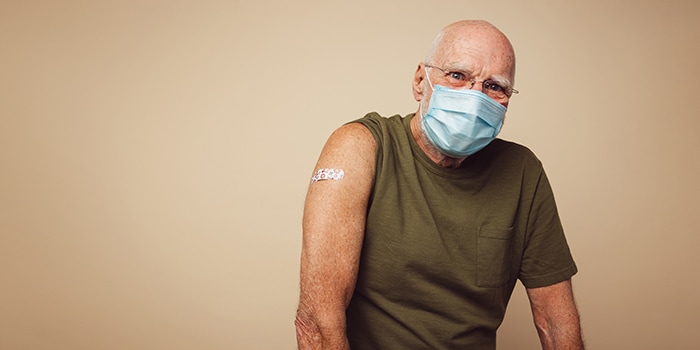This page has content that may be inconsistent with new CDC Respiratory Virus Guidance. The content of this page will be updated soon.
Easy to Read: Needle Phobia

1. What is needle fear?
Needle fear means being afraid of getting poked with a needle.
2. What is this article about?
Having a fear of needles is common and does not just happen to children. Adults may also be afraid of getting stuck with needles when they go to the doctor. Getting medicine put in the skin with a needle usually does not hurt much, but the mind can play tricks and make people feel very afraid.
This article gives you tips that can be used to help you deal with your fear of needles so that it does not get in the way of important shots that you may need.
3. Helpful Tips to Handle Fear and Pain
Understanding What Makes Fear Better or Worse
Pictures of needles and watching the news about shots can cause fear in some people.
Being in a private space may be more comfortable for people with needle fears.
Being in a private space may be more comfortable for people with needle fears.
Knowing why the medicine has to be put in the skin, where it will happen, who will be there, and what happens before, during, and after can help make it less scary.
- The doctor or a family member can help explain that putting the needle in the skin may feel like a pinch. It may hurt a little bit, but just for a moment.
- Practicing what will happen before going to the doctor may help reduce the fear.
Helping with Pain and Fear
Using numbing cream or spray before the needle is used can help reduce the pain.
Making the skin cold, rubbing it, or using a buzzer can help the brain focus on that feeling and not any pain from the needle.
Having something else to do like playing with a toy or looking at a video can help keep the mind away from the pain and fear.
Taking deep breaths can help calm the mind while the needle is used.
Different people might need different ways to handle fears.
- Doctors can help you make a plan that works best for you. They can help you think about the different tips and see which ones you want to use.
- Family and friends can also be a part of the plan that works best for you.
- If your fear gets really bad, you can ask for help from a doctor who is an expert in helping with fears.
4: Getting help
People who have fears that get in the way of important medical care need support. There are many ways family members, caregivers, or friends can support someone who has needle fears.
- They can let you know there is nothing to be ashamed of.
- They can come with you, support you, and help you with the ways that you want to manage your fears.